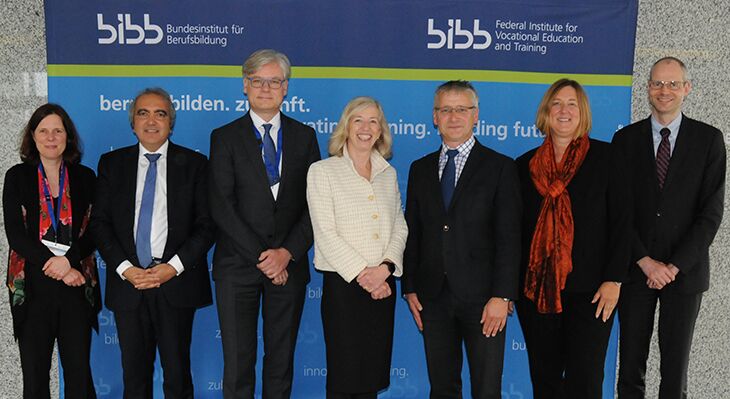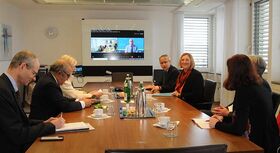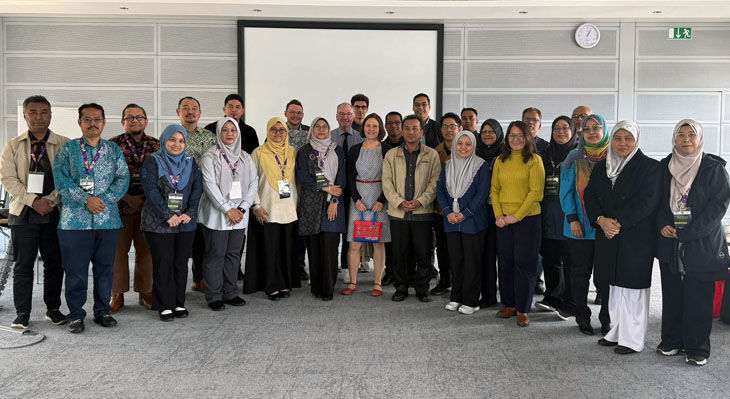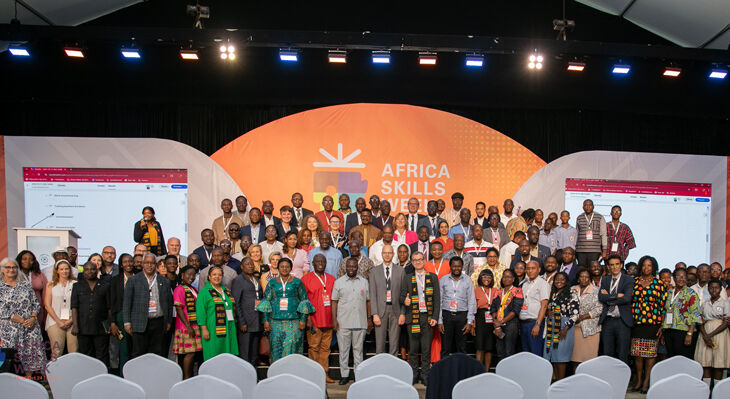Cooperation with partner institution UNESCO-UNEVOC
The United Nations' International Centre for Technical and Vocational Education and Training (UNESCO-UNEVOC) is a key partner for the BIBB when it comes to international cooperation with multilateral organisations in the field of VET. The two partners have been working together successfully since 1999.
Cooperation with multilateral organisations is a key area in the BIBB's range of international activities. BIBB has been a member of the worldwide network of vocational education and training institutions and organisations that is coordinated by the United Nations' International Centre for Technical and Vocational Education and Training (UNESCO-UNEVOC) already since 1994.
The two organisations have a cooperation agreement since 1999. For example, BIBB supports the network in the organisation and execution of events and by subject-specific contributions.
Furthermore BIBB advises members regarding the dual system of vocational education and training and provides insights into its implementation in Germany. BIBB contributes its expertise regarding reform processes in vocational education and training systems. The mutual sending of experts and the organization of study visits are further parts of the cooperation.
In October 2022, Stefania Giannini, UNESCO Assistant Director General for Education, visited the BIBB. Ms Giannini thanked the BIBB for its continuous support over the past two decades and emphasised that the German VET system is an important model and benchmark in international VET cooperation. The subsequent round of talks with the BIBB management focused, among other things, on the integration of transversal competencies in VET and the support of cross-border mobility through common instruments of recognition.
BIBB is a member of the Expert Committee of the German Commission for UNESCO
In 2015, in its capacity as a member of the Special Education Committee of the German UNESCO Commission (DUK), BIBB was involved in drawing up a draft resolution for the implementation of the 2016-2030 UN Education Agenda. It was particularly responsible for ensuring that aspects relating to vocational education and training were included in the DUK Response.
In 2021, BIBB participated in the drafting of a resolution for an equal-opportunity design of the digital transformation in education.
Focus of cooperation
| 2019-2021 | Project "Bridging Innovation and Learning in TVET" (BILT-Bridges) / Coordination of the European UNEVOC Cluster |
| 2015-2018 | Work-based-learning |
| 2015-2016 |
Industry 4.0“ and Knowledge Management |
| 2013-2014 | Knowledge Management and Greening TVET |
Mutual activities
Knowledge Management
- BILT-project/Peer Learning (2019-2021): Since 2019, BIBB and UNESCO-UNEVOC have been implementing the BILT project on behalf of the BMBF. The project is seen as an innovation platform for VET. Through the cooperation of the European UNEVOC network and - perspectively - African and Asian partners (Bridging Process) national developments in VET are to be complemented by innovative, market-oriented and attractive learning examples.
- Since 2014: Further development of the worldwide glossary TVETipedia on the terminology of vocational training
- In 2016 BIBB established the UNEVOC Resource Centre in its library. Here the UNEVOC network is presented. The BIBB library is the largest academic library specialized in the field of VET and VET research in the German-speaking world.
- Development of the "Greening TVET Guide"
- Brochure development „Skills Challenges in the Water and Wastewater Industry Contemporary Issues and Practical Approaches in TVET“
- 2013/14: Development of a selective bibliography on the topic „Attractiveness of vocational education and training: Permeability, successful school-to-work transitions and international mobility”.
Knowledge Development
From 2015-2018, BIBB was in charge of the research project: International Comparative Survey of the Research Field on Work-based Learning (see at projects no. 7.8.152) - (Publication: Work-based Learning as a Pathway to Competence-based Education)
Capacity Building/Policy
- BILT Conference (2020)
- UNESCO-UNEVOC TVET Learning Forum (2020 / 2018 / 2016 / 2014)
- Global and regional TVET Leadership Programme (2019 / 2018 / 2017/2016)
- UNESCO-UNEVOC Promising Practice (2019)
- UNESCO Mobile Learning Week (2018)
- UNESCO photo competition on occasion of WYSD (2018)
- Networking event of the UNEVOC Regional Cluster Europe (2017)
- BIBB Partner Meeting Asia-Pacific (2019/2016)
- UNESCO-UNEVOC E-Forum on "Greening TVET and Sustainable Development in Policy and Practice" (2013)
- UNESCO-UNEVOC Regional Forum "Advancing TVET for Youth Employability and Sustainable Development in Africa" (2013)
- 1st global BIBB partner meeting with focus on Greening TVET (2013)



